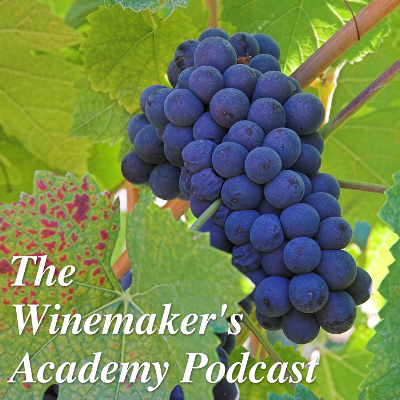In this episode of the Winemaker’s Academy Podcast we’ll be exploring a simplified way of looking at the wine making process. After all the better understanding we have of this process the better wines we’ll be able to make.
The process discussed in the episode is based on an article I wrote previously entitled The Wine Making Process Simplified.
Additionally the show covers a variety of questions from Academy members and fans. Here’s a taste of what’s covered:

- Is there a way to tell if there is still gas in the wine that needs to come out before I bottle?
- Which fruit is suitable for wine making other than grapes?
- Fizzy wine
- Does more concentrated juice (costs more) in the kit make for a better wine and why?
- My white wines they tend to look gold in color and not a clear light white. Why?


 What makes this method of fermentation so different is that you begin with whole, unbroken grape clusters still on the stems. The grapes are then placed in a sealed fermentation container filled with carbon dioxide.
What makes this method of fermentation so different is that you begin with whole, unbroken grape clusters still on the stems. The grapes are then placed in a sealed fermentation container filled with carbon dioxide. 
 Here it is! The very first episode of the Winemaker’s Academy Podcast. This has been a long time in the making but I am proud to have finally brought this to the world.
Here it is! The very first episode of the Winemaker’s Academy Podcast. This has been a long time in the making but I am proud to have finally brought this to the world.
